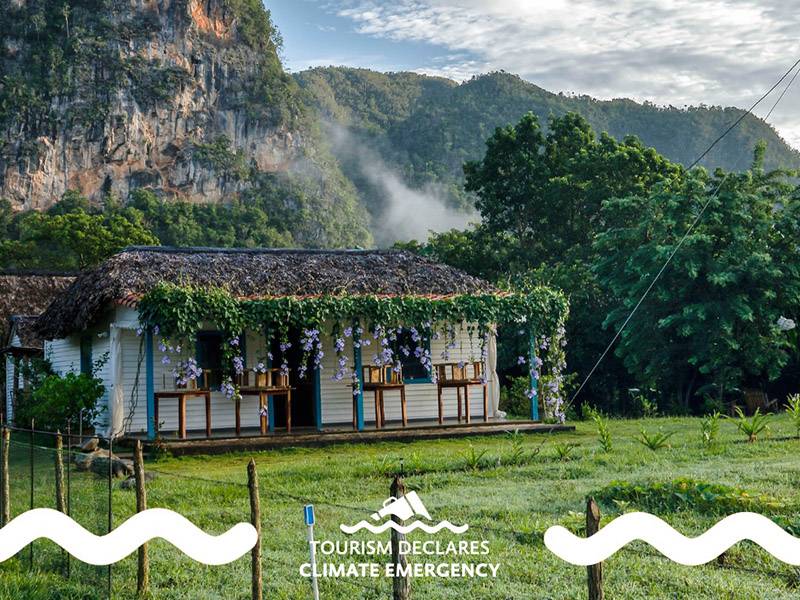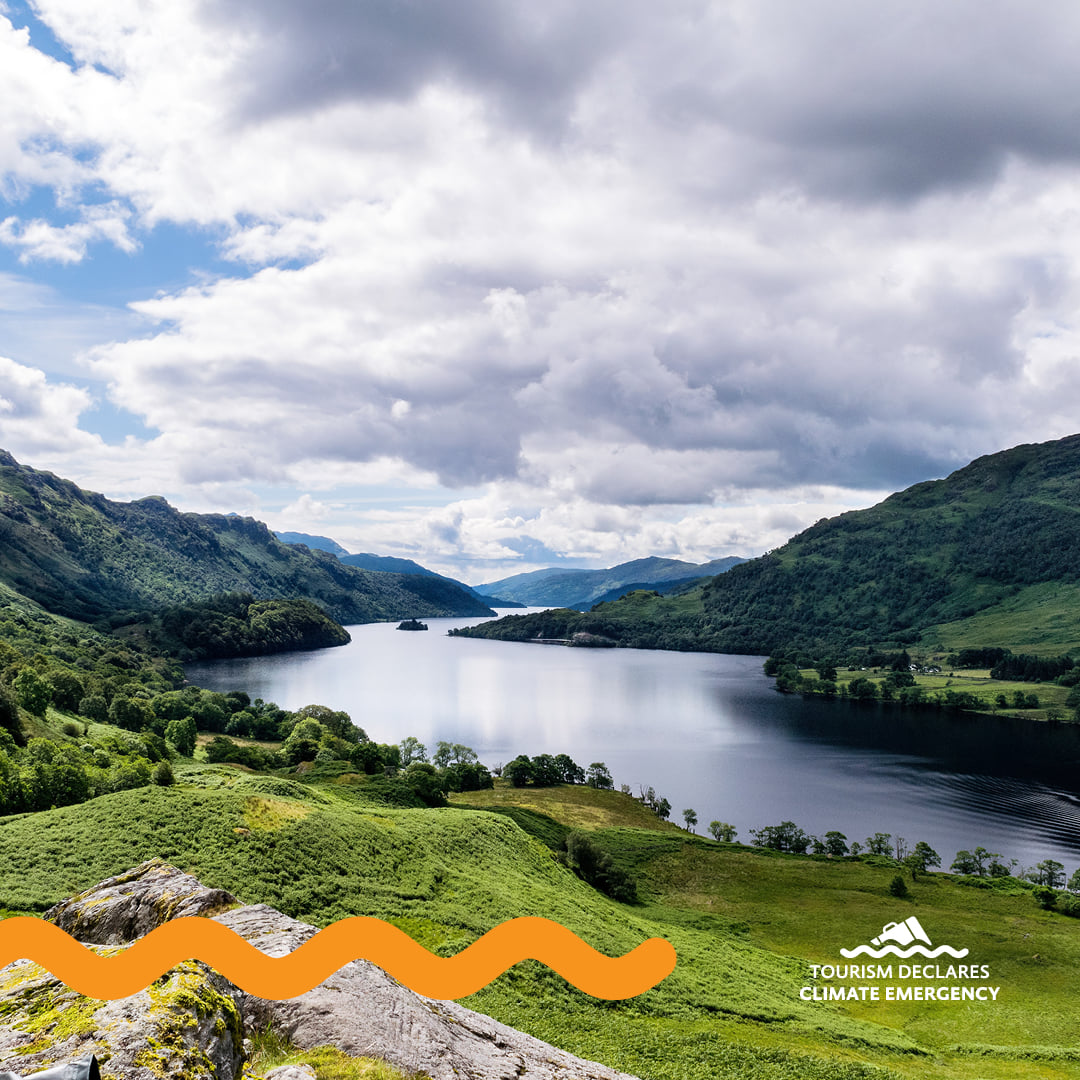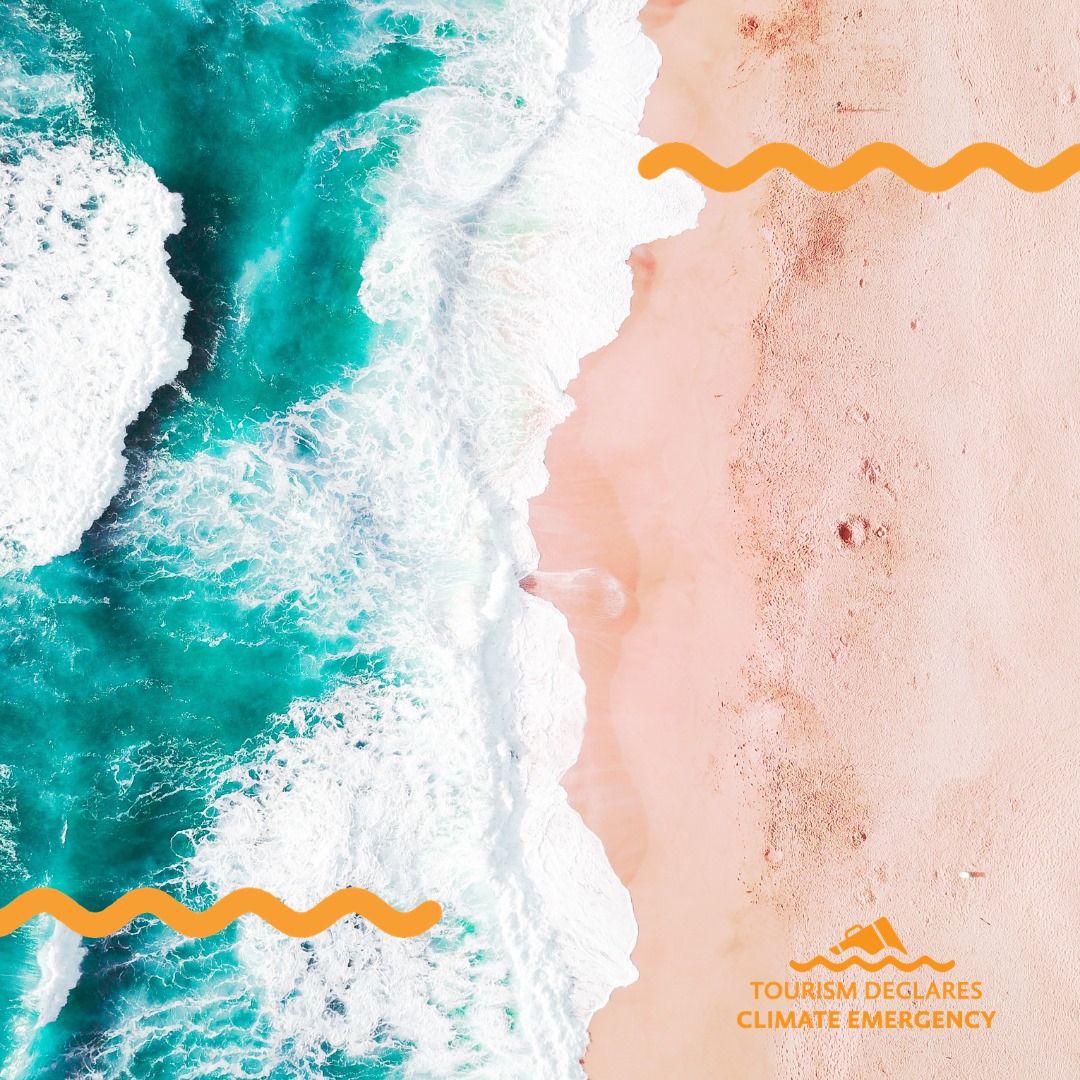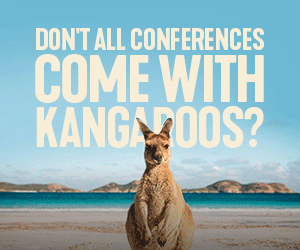Tourism Declares: “What we need to be offering people is a sense of regeneration”

Today, there is little doubt that our socioeconomic impact is inseparable from climate action. However, when this alliance was created in January 2020, the label “climate emergency” was just a strong harbinger that we now associate with this pandemic crisis. Tourism Declares Climate Emergency is a global community that seeks a better future for the industry by acting sustainably for its regeneration. Sustainable tourism consultant Jeremy Smith, co-founder of the movement, spoke to us via skype.
What was the great motivation behind the foundation of this networked community?
We formed this alliance in January last year, due to the frustration and a lack of consensus on how tourism was responding to climate change. Although there was an increasingly emerging agreement outside tourism - even more so now - on how we need to act, the framework we need to adopt and the targets we need to define, we felt that tourism continued to define its own goals and frameworks, in a somewhat confused and inconsistent way. Therefore, it has become difficult for companies in this industry to choose an appropriate direction without a specific framework. We had to stop “reinventing the wheel” and come up with new ways to align what we were doing as an industry to find that consensus. That was the initial motivation.
How has the industry and the various stakeholders received your message and the content of your initiative? Are they open to it?
If you think about the context of the launch of our community, we started with just 14 founding signatories, and at that time, no one was talking about the pandemic. We arrived at a timeframe when there was a lot of money, capacity and everyone was planning more growth, although a lot of people were also concerned about overcrowding and local communities resisting the growth of tourism. If you went to a conference on tourism, those were the conversations about sustainability. And then, of course, ‘March’ happened and the situation changed drastically: just two months after our arrival and having a big pick up and a very positive response, we suddenly faced an industry that had never seen a crisis like this. Back in March/April last year, everyone was focused on bringing guests back home, on furloughing their staff, but no one was able to talk about anything else. As soon as we settled down in the middle of the summer and the conversation started to focus on the future, we went to speak to our members - around 65 at this point - everyone told us that the experience of the pandemic in their businesses made them even more engaged in acting on sustainability and climate change. However, contrary to the situation in January, almost all of our members have lost their leeway - money, capacity, personnel - and despite their commitment, they definitely need some support now. For us, this triggered a change of identity where we initially presented ourselves as an awareness campaign to become a global community.
 Do you have a feeling now that the industry is dealing with a state of no return?
Do you have a feeling now that the industry is dealing with a state of no return?
That is the question that we all ask ourselves. The trap of this question is: what do I want the answer to be, rather than what I necessarily think it will be. We have to move forward, invent new ways, and everyone I've been talking to is locked in with this idea. However, I also feel that for many people this is just a wishful thinking, sort of "(...) the moment you give me a chance to catch a plane to the Maldives, I will be there for sure". People want to get out, travel and meet. It would be easy to make a prediction but we won't really know until later. Nevertheless, my gut feeling is that this a significant moment of change.
For most of us who have not witnessed either of the two world wars or have never experienced this type of pandemic, this is unlike anything we've ever been through in our lives. The desire to travel, to meet the unkonwn, is much more than tourism. For me, this is almost ingrained in our DNA. Family separations, globalisation, the affective bond we create with some places, all of these affect our anxiety about traveling. Will we be more sensitive to the impact of our actions on the environment? Hope so.
I think what's going to change enormously is the working frame of business travel. I see the world of events up close as we spend the entire year talking to people on screen. Some of the virtual meetings changed the world for the better - I had better opportunities and connections as a result. Previously I would have set aside three days to schedule the connection, to take the business trip and spend my time there. This has irretrievably changed.
The Era of climate action is now: what can we do as an industry to really step into this global sustainable action as a whole?
In the MICE industry, there is much that can be done, as everything is on hold and there are many regulations and guidelines from high-end organisations, such as the GDS Movement.Let's say we decided to hold our annual conference in Gothenburg and made sure that most of our guests came by train, reducing the number of flights. The business event industry can track these numbers in favour of a more sustainable destination, reversing old trends and encouraging change. We can choose the hotels we wish to partner with, recommending those that have a greater degree of commitment to the climate. Add to that the new hybridisation that we are seeing accelerated by the pandemic, and we’ll be able to fly-in half of last year's speakers, inviting the other half via link up. This starts from something that was viewed as limiting to something that creative people use as an opportunity. In Helsinki, city that is at the heart of circular economies, you can really tick through all the various parts of the process - by commissioning the PCO, ensuring that 100% of the sets can be reused, allying with eco-friendly companies, etc. Ten years ago, you would struggle to find a company that would deliver a sustainable event, but now, destinations are competing not only in terms of reduction, but also in the transformation into something regenerative. What if we really created an event in this city where the legacy is not a waste, but a beacon of regeneration? - where we support business, connect people and change the whole way we perceive the industry.
How can we drive positive change through this technological revolution of MICE?
Right at the top there is the level of pure emissions, in the sense that opting for virtual accounts for less transportation, waste or use of spaces. But there is also a very important social and inclusive part that we must never forget. We can't talk about sustainability just as an environmental issue, we have to talk about an inclusive movement to engage the whole of society, and focus on people who don't have the platforms and opportunities to speak and be heard. People like me and others who have the chance to talk about these topics with a lot of practice and confidence, are invited to come back all the time. Nowadays, if I'm invited to speak virtually it doesn't matter where I live, so as long as I have a good internet connection, I can sit in any place and we will all become part of the course. Fortunately, this can also be used as a way to increase inclusion by getting different voices that we’ve never heard before. Making sure that we listen to someone who represents a community that is really affected by environmental issues.
Furthermore, I think what will change enormously is the working frame of business travel. I see the world of events quite closely as we spent this entire year talking with people on screens. Some of the virtual meetings that we inevitably started to attend changed the world for the better. I have had better opportunities and connections as a result of this. So, for me, social inclusion is the greatest strength.
 How can we regenerate the transport industry so that it becomes aligned with these new requirements and principles?
How can we regenerate the transport industry so that it becomes aligned with these new requirements and principles?
I will separate transportation and aviation because when it comes to land base transport the opportunities are far more present. People see trains as part of the solution anyway, so supporting and financing the development of railways is the right path to follow. We need to shift our investment into focusing on these forms of transport that are by nature “greener”. The train is an obvious answer, but improving the quality of bicycle and electric infrastructure is also a factor. Especially in urban areas, investing in these networks means less pollution, a healthier population, fewer deaths from traffic accidents, etc. For this set of transports - trains, bicycles, buses, electric cars - there should be support for subsidies and investments in infrastructure, so the more complex and tight the network is, the better it gets. This, by nature, means shifting your investment away from aviation, especially when overland transport offers a viable and balanced option. When you start putting financial measures in place, you can encourage the speed of change in aviation. Last month, Sweden discussed a bill for two of its Swedish airports that intended to impose landing fees linked to aircraft emissions. Therefore, more polluting airplanes will pay more for landing than less polluting airplanes. Most certainly, we’ll see some bail outs post-COVID, and hopefully, there will be a chance to impose some green conditions. For example, if a national carrier needs to be saved, that same company must commit to a set of sustainable measures for that to happen. Commit to change to push the collective movement forward.
How can we define a sustainable organisational culture in 2021?
I care very much about the language that we use, and I also worry a great deal about how language gets twisted, shifted and used for different reasons. The word ‘sustainability’ and its concepts have always been difficult for people to grasp. They find it a jargon word, a sterile concept. The moment we reduce something down to a single word, it becomes a label and labels are divisive. What we need is to be able to have something much more inclusive, where you can find your way whoever you are. If your burning issue is to fix racism we can actually have a conversation about climate, and vice-versa. We can find common ground on these issues to move forward. If I had a wish about the results this year, it would be to change this conversation around sustainability to another around regeneration. It is not enough to just sustain or just maintain, what we need to offer people is a sense of recovery, of restoration. A sense of opportunity that brings us back to a more engaged relationship with the natural world, at the heart of regeneration. We can find ways not only to reduce the amount of carbon we create, but also to bring out a new mind-set. How can I leave the place I'm in, better than when I went there? Better for all of us to feel part of something regenerative and more positive. This is the emerging conversation to be taken in 2021.
Other Articles
About Us
Supported by the Union of International Associations (UIA), the International Association of Professional Congress Organisers (IAPCO) and the Interel Group, the global public affairs and association management consultancy, Headquarters Magazines serve the needs of international associations organising worldwide congresses.















